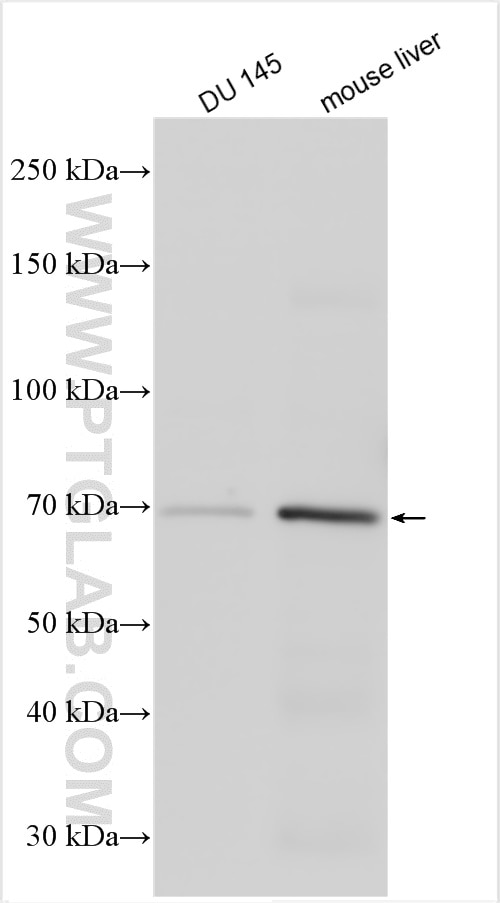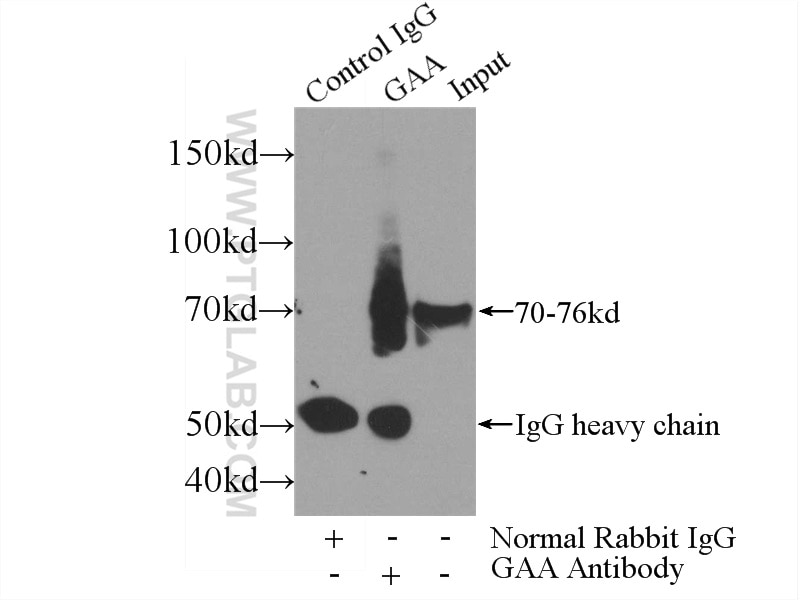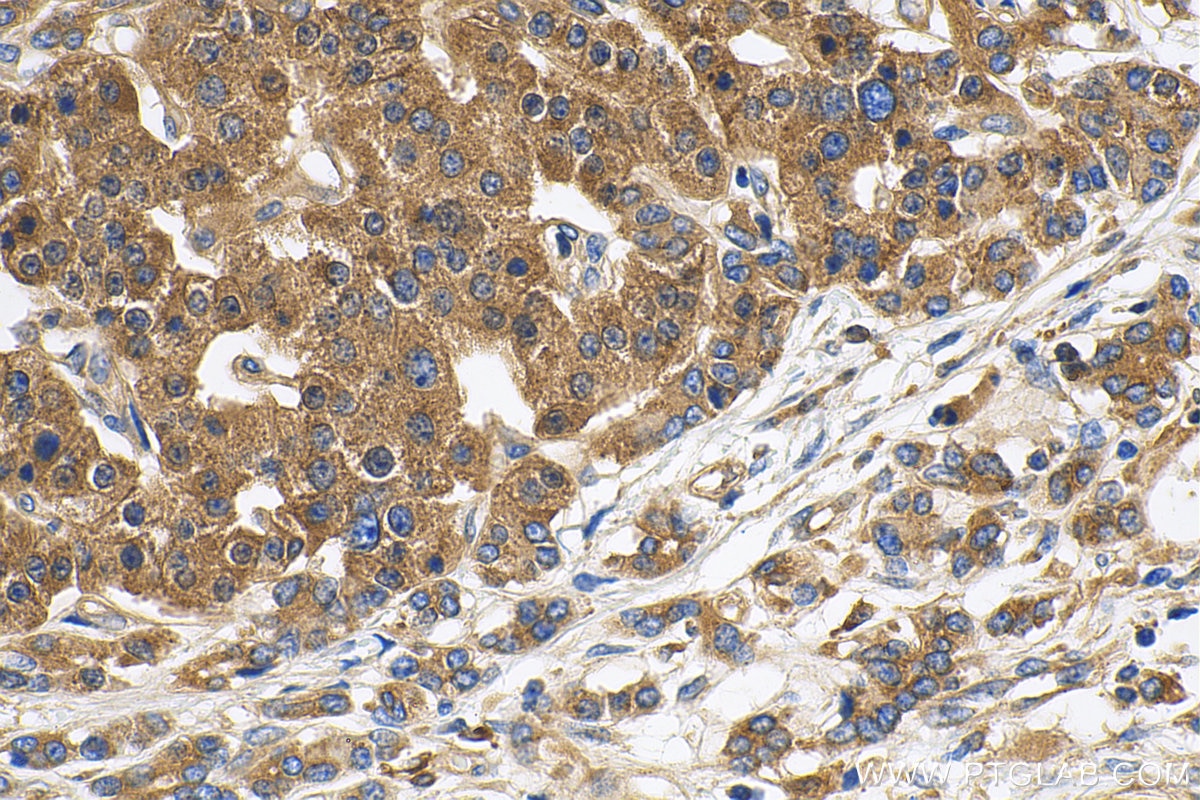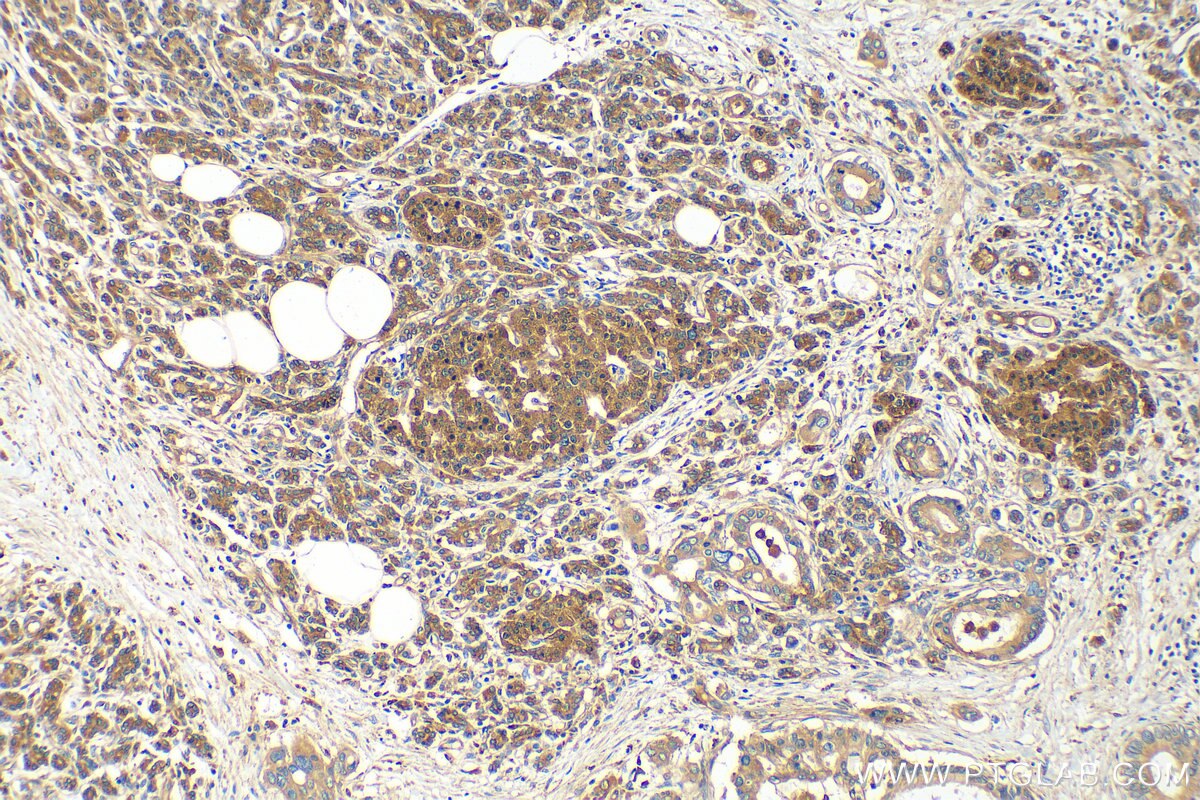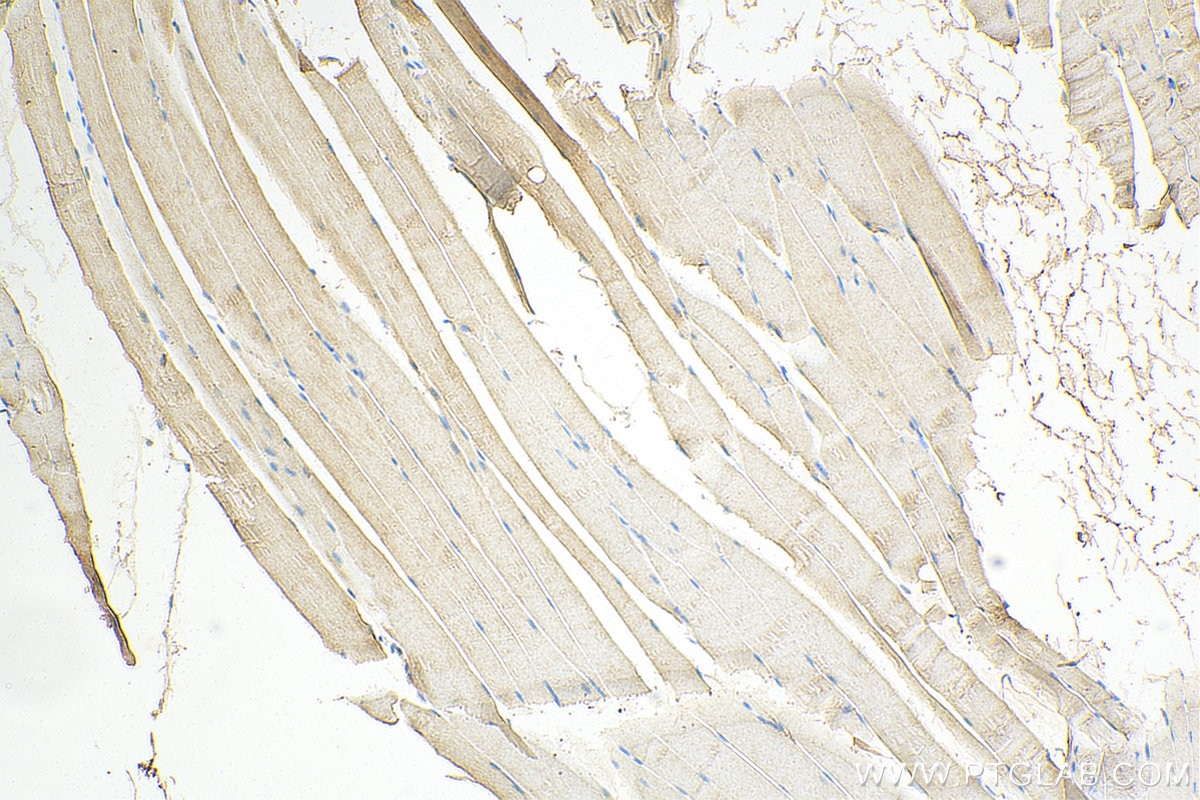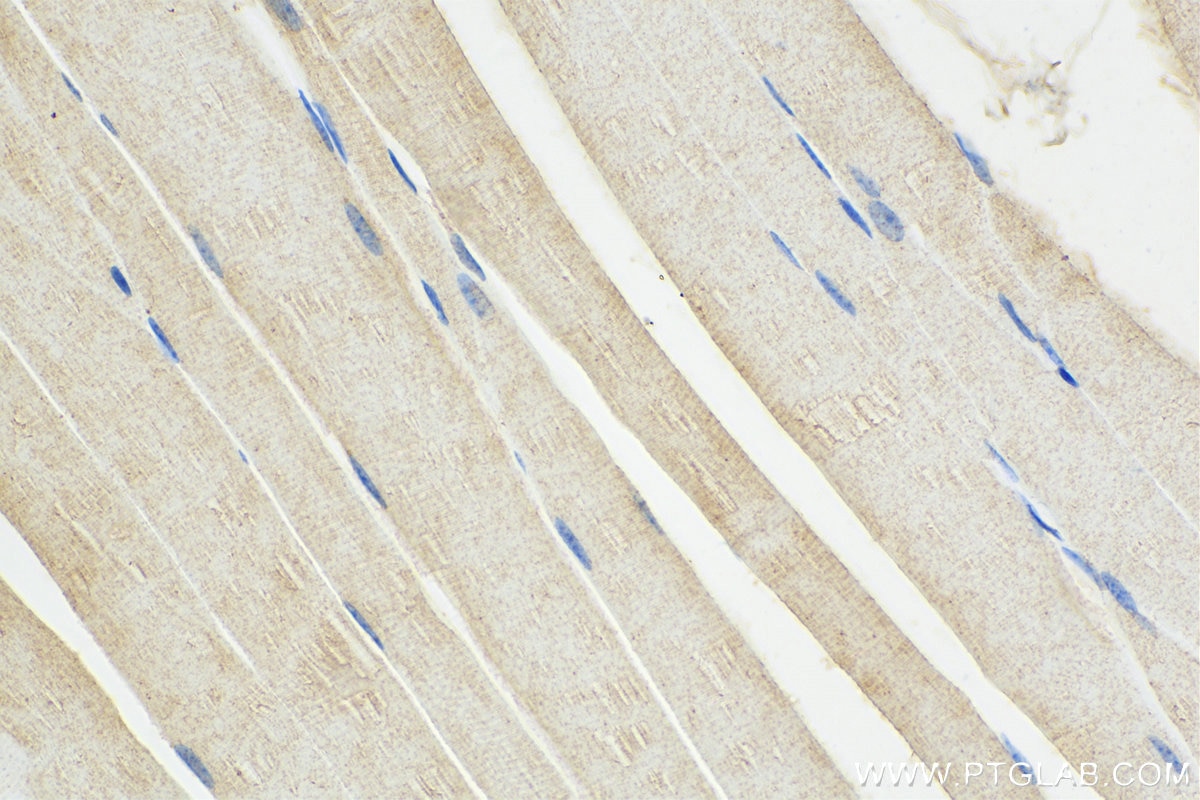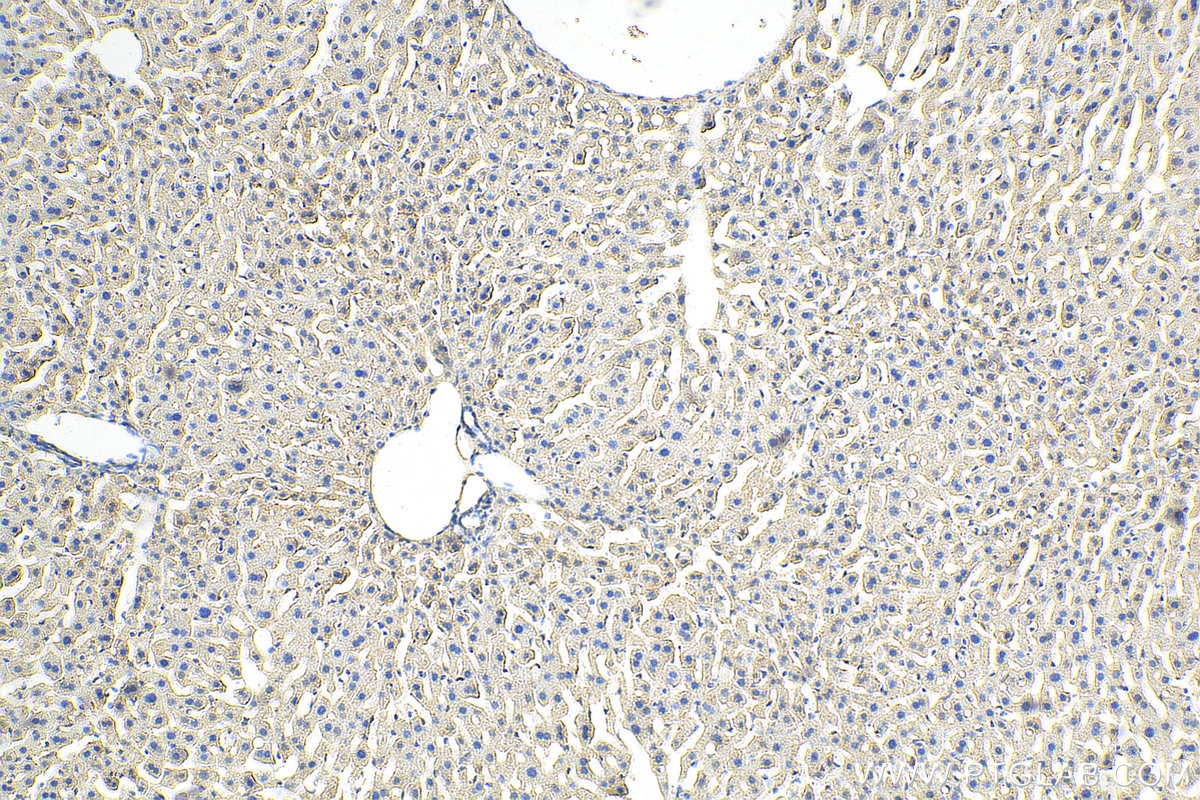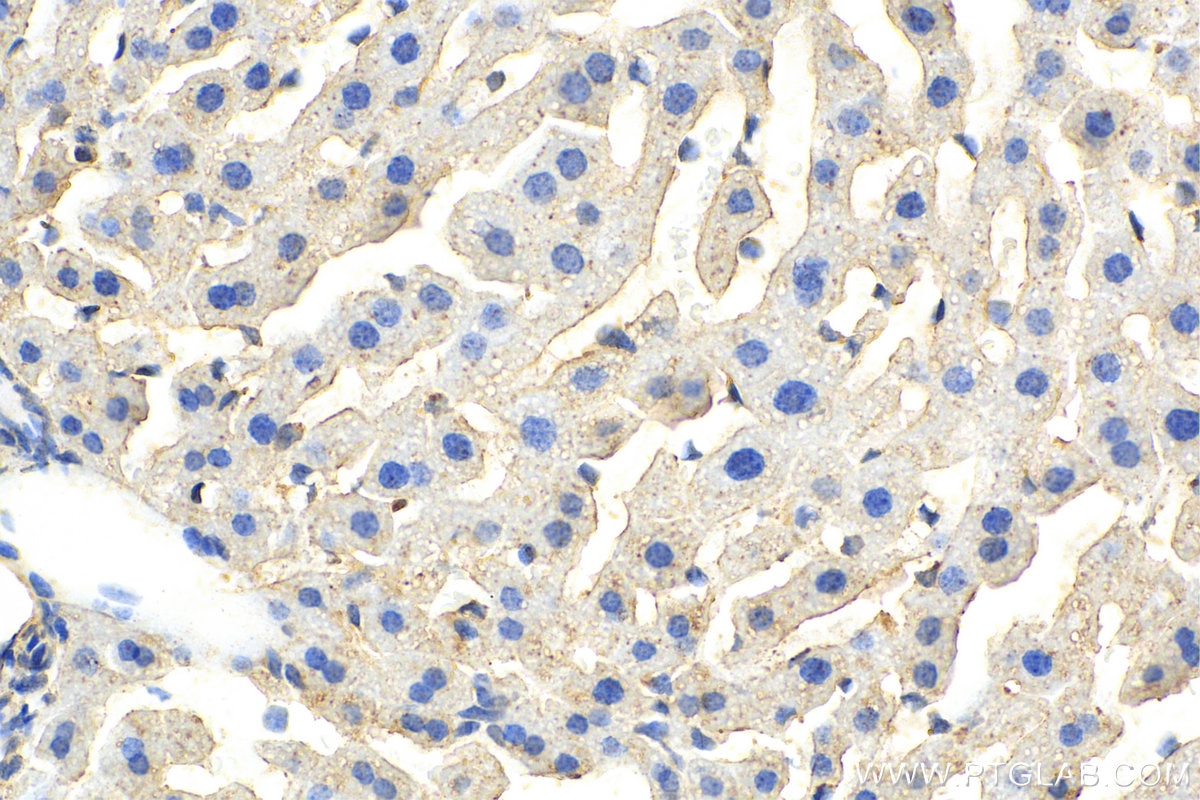Anticorps Polyclonal de lapin anti-GAA
GAA Polyclonal Antibody for WB, IP, IHC, ELISA
Hôte / Isotype
Lapin / IgG
Réactivité testée
Humain, souris et plus (2)
Applications
WB, IP, IF, IHC, ELISA
Conjugaison
Non conjugué
N° de cat : 14367-1-AP
Synonymes
Galerie de données de validation
Applications testées
| Résultats positifs en WB | cellules DU 145, tissu hépatique de souris |
| Résultats positifs en IP | tissu hépatique de souris |
| Résultats positifs en IHC | tissu de cancer du pancréas humain, tissu de muscle squelettique de souris, tissu hépatique de souris il est suggéré de démasquer l'antigène avec un tampon de TE buffer pH 9.0; (*) À défaut, 'le démasquage de l'antigène peut être 'effectué avec un tampon citrate pH 6,0. |
Dilution recommandée
| Application | Dilution |
|---|---|
| Western Blot (WB) | WB : 1:500-1:2000 |
| Immunoprécipitation (IP) | IP : 0.5-4.0 ug for 1.0-3.0 mg of total protein lysate |
| Immunohistochimie (IHC) | IHC : 1:50-1:500 |
| It is recommended that this reagent should be titrated in each testing system to obtain optimal results. | |
| Sample-dependent, check data in validation data gallery | |
Applications publiées
| WB | See 2 publications below |
| IHC | See 1 publications below |
| IF | See 4 publications below |
Informations sur le produit
14367-1-AP cible GAA dans les applications de WB, IP, IF, IHC, ELISA et montre une réactivité avec des échantillons Humain, souris
| Réactivité | Humain, souris |
| Réactivité citée | rat, Humain, poisson-zèbre, souris |
| Hôte / Isotype | Lapin / IgG |
| Clonalité | Polyclonal |
| Type | Anticorps |
| Immunogène | GAA Protéine recombinante Ag5690 |
| Nom complet | glucosidase, alpha; acid |
| Masse moléculaire calculée | 105 kDa |
| Poids moléculaire observé | 70-76 kDa |
| Numéro d’acquisition GenBank | BC040431 |
| Symbole du gène | GAA |
| Identification du gène (NCBI) | 2548 |
| Conjugaison | Non conjugué |
| Forme | Liquide |
| Méthode de purification | Purification par affinité contre l'antigène |
| Tampon de stockage | PBS avec azoture de sodium à 0,02 % et glycérol à 50 % pH 7,3 |
| Conditions de stockage | Stocker à -20°C. Stable pendant un an après l'expédition. L'aliquotage n'est pas nécessaire pour le stockage à -20oC Les 20ul contiennent 0,1% de BSA. |
Informations générales
GAA(Alpha-1,4-glucosidase) is a lysosomal enzyme involved in the degradation of glycogen within cellular vacuoles. After translation, GAA undergoes proteolytic processing to form two lengths of lysosomal a-glucosidase, and both N-terminal and C-terminal processing occur. The full sequence can be further processed into a mature form. The 105 kDa GAA can be cleaved into 70 kDa or 76 kDa form.
Protocole
| Product Specific Protocols | |
|---|---|
| WB protocol for GAA antibody 14367-1-AP | Download protocol |
| IHC protocol for GAA antibody 14367-1-AP | Download protocol |
| IP protocol for GAA antibody 14367-1-AP | Download protocol |
| Standard Protocols | |
|---|---|
| Click here to view our Standard Protocols |
Publications
| Species | Application | Title |
|---|---|---|
Nat Commun Spatial metabolomics reveals glycogen as an actionable target for pulmonary fibrosis | ||
J Med Chem 5-C-Branched Deoxynojirimycin: Strategy for Designing a 1-Deoxynojirimycin-Based Pharmacological Chaperone with a Nanomolar Affinity for Pompe Disease. | ||
Org Biomol Chem Introduction of C-alkyl branches to L-iminosugars changes their active site binding orientation | ||
DNA Cell Biol Disruption of the gaa Gene in Zebrafish Fails to Generate the Phenotype of Classical Pompe Disease. | ||
J Med Chem Design and Pharmacological Chaperone Effects of N-(4'-Phenylbutyl)-DAB Derivatives Targeting the Lipophilic Pocket of Lysosomal Acid α-Glucosidase | ||
Phytother Res D-pinitol alleviates diabetic cardiomyopathy by inhibiting the optineurin-mediated endoplasmic reticulum stress and glycophagy signaling pathway |
Avis
The reviews below have been submitted by verified Proteintech customers who received an incentive forproviding their feedback.
FH CHRISTINE (Verified Customer) (09-27-2019) | will continue to order here in the future.
|
